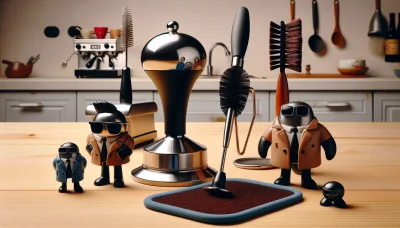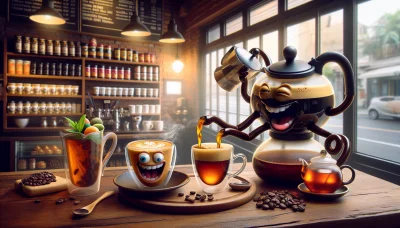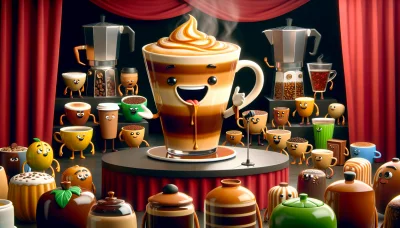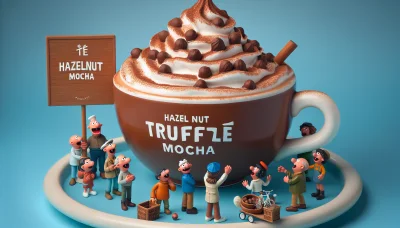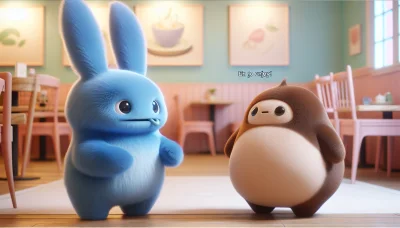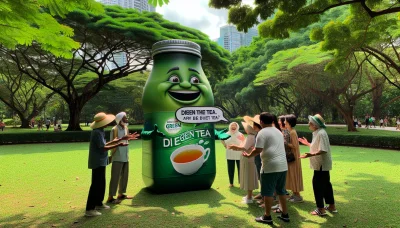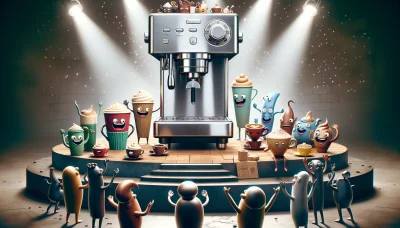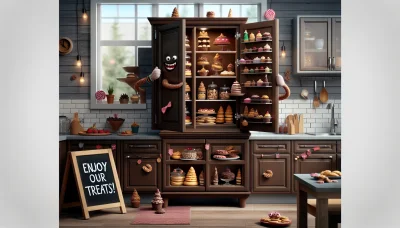Brewing Insights with Kakay Espiritu Quiz
Test Your Knowledge
Question of
Brewing Insights with Kakay Espiritu
Kakay Espiritu is a renowned expert in the art of brewing, with a deep passion and extensive knowledge in both tea and coffee. With years of experience exploring the nuances of flavors, techniques, and the cultural significance behind these beloved beverages, Kakay has become a go-to source for enthusiasts and professionals alike. From mastering the perfect pour-over to understanding the delicate balance of tea leaves, her insights offer a comprehensive guide to anyone looking to deepen their appreciation for tea and coffee or explore the latest trends in brewing and related products.
The Art of Brewing: Tea vs Coffee
Brewing tea and coffee is an art that has been perfected over centuries, with each beverage requiring a unique approach to unlock its full potential. Tea brewing often involves precise temperature control, with different varieties such as green, black, or oolong requiring specific temperatures to best extract their flavors. The steeping time is also crucial; too short and the tea will be weak, too long and it might become bitter. In contrast, coffee brewing is about the grind size, water temperature, and brewing time. Methods like espresso, French press, or drip coffee each have their own specifications for these variables to achieve the perfect cup. Additionally, the equipment used for brewing can greatly affect the taste. For tea, options range from simple infusers to elaborate ceremonial teapots, while coffee aficionados might choose between a high-pressure espresso machine or a slow-drip cold brew setup. Both tea and coffee offer a vast spectrum of flavors and experiences, shaped by the art and science of their brewing processes.
Essential Tools for Brewing
Tea Brewing Tools
- Teapot - For steeping loose leaf or bagged tea.
- Tea Infuser - A device to hold loose tea leaves during the brewing process.
- Kettle - To boil water for brewing.
- Tea Strainer - Helps to catch loose leaves when pouring tea.
- Tea Timer - Ensures tea is brewed for the correct amount of time.
- Thermometer - To check the water temperature for different types of tea.
Coffee Brewing Tools
- Coffee Maker - For brewing coffee; can range from simple to sophisticated machines.
- Coffee Grinder - To grind coffee beans for fresh coffee.
- French Press - A manual coffee brewing device.
- Espresso Machine - For making espresso and espresso-based drinks.
- Scale - To measure coffee grounds for consistent brewing.
- Filter - Used in various brewing methods to separate grounds from the brewed coffee.
Steps to Perfect Brewing
| Step | Tea | Coffee |
|---|---|---|
| 1 | Choose the right type of tea for your taste | Select your preferred coffee beans |
| 2 | Measure the correct amount of tea leaves | Grind the coffee beans to the right coarseness |
| 3 | Heat water to the appropriate temperature | Heat water to the correct temperature |
| 4 | Steep the tea leaves for the right amount of time | Brew the coffee using your chosen method |
| 5 | Remove the tea leaves and enjoy | Enjoy your perfectly brewed coffee |
The Role of Water in Brewing
Water quality plays a crucial role in the brewing process of tea and coffee, significantly influencing the final taste and quality of the beverage. The mineral content, pH level, and purity of the water can affect the extraction of flavors and aromas from tea leaves or coffee beans. For instance, water that is too hard can lead to a bitter taste due to excessive extraction, while water that is too soft may result in a flat and underwhelming flavor profile. Therefore, selecting the right water is essential for achieving the perfect balance and enhancing the overall sensory experience of tea and coffee enthusiasts.
Understanding Brewing Temperatures
The secret to unlocking the full flavor potential of your tea or coffee lies in mastering the art of brewing temperatures. For tea enthusiasts, the optimal brewing temperature varies significantly across different types. For instance, delicate white teas are best brewed at lower temperatures, around 160-185°F (71-85°C), to preserve their subtle flavors. Green teas prefer slightly warmer temperatures, between 175-185°F (80-85°C), to extract their distinct vegetal notes without introducing bitterness. Oolong teas, with their complexity, thrive at 185-205°F (85-96°C), which helps in unfolding their layered flavors. Black and herbal teas demand the hottest water, at 208-212°F (98-100°C), to fully extract their boldness and depth.
When it comes to coffee, the brewing temperature plays a pivotal role in the extraction process, affecting both taste and aroma. The Specialty Coffee Association recommends a brewing temperature range of 195-205°F (90.5-96°C) for optimal extraction. Temperatures below this range can lead to under-extraction, producing a weak, sour cup, while temperatures above can cause over-extraction, resulting in a bitter taste. Whether using a drip brewer, French press, or espresso machine, maintaining this temperature range can significantly enhance your coffee experience.
Understanding and controlling the temperature of your water is key to brewing the perfect cup of tea or coffee. Investing in a good quality thermometer or a kettle with temperature control can make a significant difference in your brewing process, leading to a more enjoyable and flavorful cup. Whether you're a tea aficionado or a coffee enthusiast, paying attention to brewing temperatures will elevate your drinking experience.
The Impact of Brewing Time on Taste
Brewing time is a critical factor that significantly affects the taste of both tea and coffee, influencing their flavor, aroma, and overall enjoyment. For tea, the length of brewing time can determine the strength and bitterness of the beverage. Shorter brewing times result in a milder flavor, preserving the tea's delicate notes, while longer brewing times can extract more tannins, leading to a stronger, more bitter taste. Similarly, in coffee brewing, the duration of contact between the coffee grounds and water plays a vital role in the extraction process. Optimal brewing times help in extracting the desirable flavors and aromas, whereas too short or too long brewing times can lead to under-extracted or over-extracted coffee, respectively, affecting its balance and taste. Understanding and controlling the brewing time is essential for preparing the perfect cup of tea or coffee, making it an important consideration for enthusiasts and professionals alike who are passionate about their brewing and related products.
Final Thoughts on Brewing with Kakay Espiritu
Kakay Espiritu, a renowned expert in the world of tea and coffee brewing, shares invaluable insights that both novices and connoisseurs can appreciate. Espiritu emphasizes the importance of using high-quality water, as it constitutes the majority of both tea and coffee, and can significantly influence the final taste. She advocates for the meticulous selection of tea leaves and coffee beans, stressing that the origin, harvest time, and processing methods play crucial roles in flavor profiles. Furthermore, Espiritu highlights the significance of mastering the brewing time and temperature to extract the perfect balance of flavors. She also introduces innovative brewing techniques and gadgets that can enhance the brewing experience. Espiritu's passion for sharing her knowledge shines through, as she encourages experimenting with different brewing methods and ingredients to discover personal preferences and elevate the tea and coffee experience.

